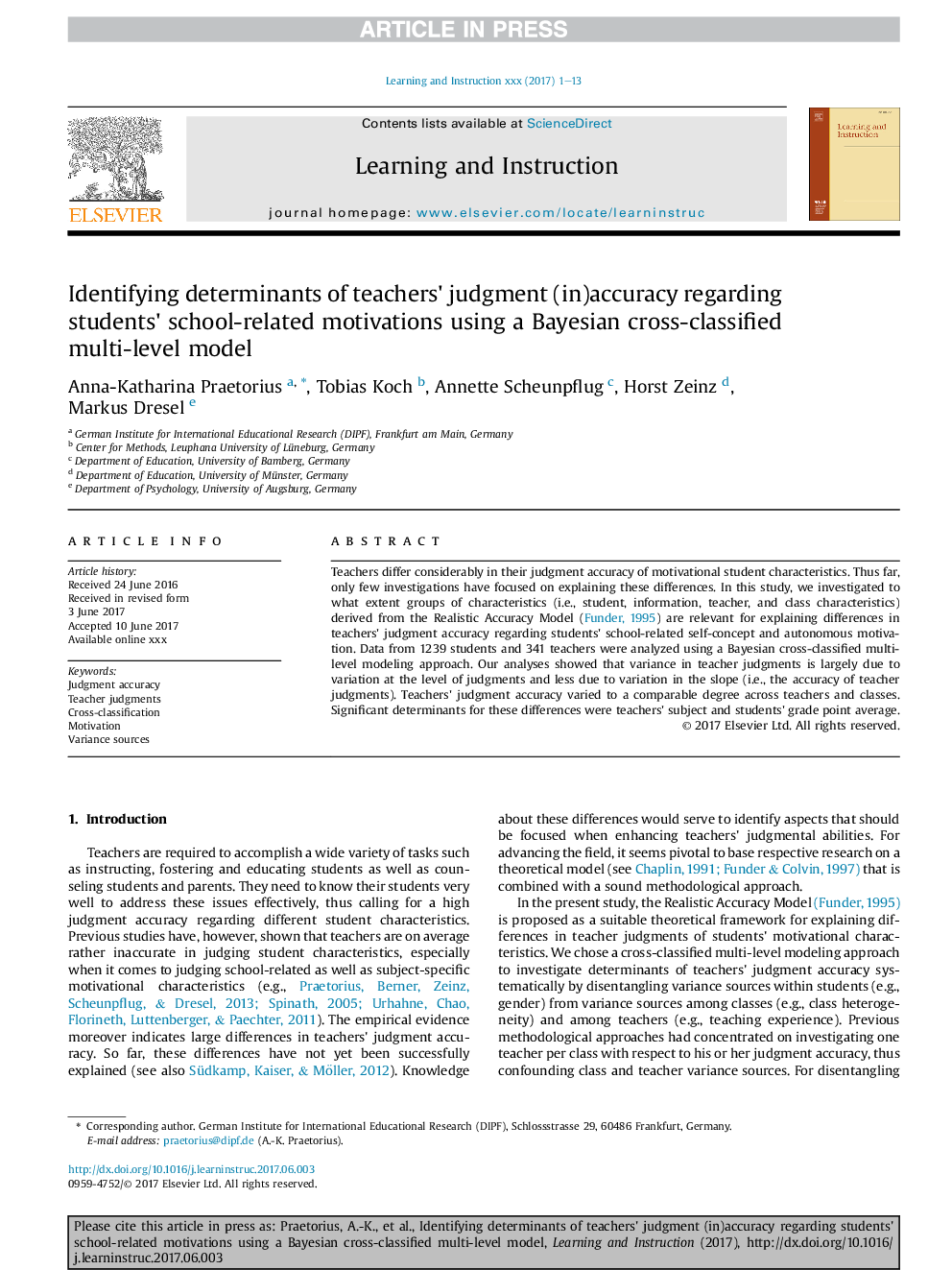| Article ID | Journal | Published Year | Pages | File Type |
|---|---|---|---|---|
| 4940210 | Learning and Instruction | 2017 | 13 Pages |
Abstract
Teachers differ considerably in their judgment accuracy of motivational student characteristics. Thus far, only few investigations have focused on explaining these differences. In this study, we investigated to what extent groups of characteristics (i.e., student, information, teacher, and class characteristics) derived from the Realistic Accuracy Model (Funder, 1995) are relevant for explaining differences in teachers' judgment accuracy regarding students' school-related self-concept and autonomous motivation. Data from 1239 students and 341 teachers were analyzed using a Bayesian cross-classified multi-level modeling approach. Our analyses showed that variance in teacher judgments is largely due to variation at the level of judgments and less due to variation in the slope (i.e., the accuracy of teacher judgments). Teachers' judgment accuracy varied to a comparable degree across teachers and classes. Significant determinants for these differences were teachers' subject and students' grade point average.
Related Topics
Social Sciences and Humanities
Psychology
Developmental and Educational Psychology
Authors
Anna-Katharina Praetorius, Tobias Koch, Annette Scheunpflug, Horst Zeinz, Markus Dresel,
